Background to the story
This is the tale of Constanze and Belmonte, two young Spaniards of noble birth. Constanze, her English maid, Blonde, and Pedrillo, Belmonte’s servant, fell into the hands of pirates who attacked their ship. The pirates sold their captives at a slave market to Pasha Selim. After month of searching for them in despair, tormented by not knowing what had become of his beloved Constanze and the two servants, Belmonte sets out to find them.
Act One
Belmonte has arrived on the distant Turkish shore and approaches the high wall surrounding the seraglio. Here he encounters Osmin, the Pasha’s right-hand man, and questions him about the people he is seeking. Osmin, however, has not the slightest intention of giving this stranger any information whatsoever and sends him on his way.
Belmonte continues to look for a way to get into the seraglio.Through a prison window, he manages to catch a glimpse of Pedrillo. This confirms that Constanze and Blonde are also being held prisoner in the harem.
Pasha Selim has chosen Constanze to be the object of his affections. He visits the harem every day and does everything in his power to persuade her into accepting his suit. Constanze remains steadfast in adamantly refusing to succumb. She has no idea yet that her beloved Belmonte is so near.
Meanwhile, belmonte has disguised himself as an architect an enters the First Courtyard of the seraglio. He teams up with Pedrillo and together they try to get past Osmin into the Second Courtyard.
Act Two
Osmin has taken a fancy to Blonde, but his persistent advances are met with resistance by the young English woman. The two of them are involved in constant battles of wit, which Osmin just can’t win.
Constanze makes it increasingly difficult for the Pasha to approach her and he finally loses patience. He threatens to punish her if she does not soon accept his suit.
Blonde learns about the plan for their escape from Pedrillo. Before they can put the plan into action, however, they first have to outwit Osmin. Pedrillo manages to persuade Osmin to help him empty a bottle of wine and the latter then falls into a deep sleep. The two couples are able to meet and plan their escape.
Act Three
Belmonte, still disguised as an architect, smuggles Pedrillo out of the Seraglio and they head for Belmonte’s ship. There they wait for night to fall.
At midnight, Belmonte and Pedrillo row round the coast to the foot of the harem. Pedrillo serenades his Blonde as a signal. Osmin discovers them in the boat and sends a fleet of ships out to capture them again.
The death penalty awaits them, but Pasha Selim decides to forgo revenge and sets the captives free.
© Bavarian State Opera
Place: the country house of the Pasha (German "Bassa"), in Turkey
Time: 16th century
Act 1
After a lively overture, Belmonte enters, looking for his betrothed, Konstanze, who with her English servant Blonde has fallen into the hands of pirates and been sold to Pasha Selim (Aria: "Hier soll ich dich denn sehen" – "Here surely I must find her"). Osmin, the Pasha's bad-tempered servant, comes to pluck figs in the garden and contemptuously ignores Belmonte's questions (Aria: "Wer ein Liebchen hat gefunden" – "You may think, you've found a maiden"). Belmonte tries to obtain news of his servant, Pedrillo, who has been captured with the women and is serving as a servant in the Pasha's palace. Osmin replies with insults and abuse (Duet: "Verwünscht seist du samt deinem Liede!" – "The devil take you and your song, sir"). Belmonte leaves in disgust. Pedrillo enters and Osmin rages at him, vowing to get him tortured and killed in many different ways (Aria: "Solche hergelaufne Laffen" – "These young men who go a-spying"). Osmin leaves and Belmonte enters and happily reunites with Pedrillo. Together they resolve to rescue Konstanze and Blonde, who is Pedrillo's fiancée (Aria: "Konstanze, Konstanze, dich wiederzusehen … O wie ängstlich" – "Konstanze, Konstanze, to see thee again … Oh what trembling").
Accompanied by a chorus of Janissaries ("Singt dem großen Bassa Lieder" – "Sing to the mighty Pasha Selim"), Pasha Selim appears with Konstanze, for whose love he strives in vain (Aria of Konstanze: "Ach ich liebte" – "How I loved him"). Pedrillo tricks the Pasha into hiring Belmonte as an architect. When Belmonte and Pedrillo try to enter the palace, Osmin bars their way, but they hurry past him anyway (Terzett: "Marsch! Marsch! Marsch! Trollt euch fort!" – "March! March! March! Clear off!").
Act 2
The Pasha has given Blonde to Osmin, to be his slave; however, she defiantly rebuffs her new master's rough lovemaking attempts (Aria: "Durch Zärtlichkeit und Schmeicheln" – "With smiles and kind caresses"), threatens to scratch out his eyes, and chases him out of the room (Duet: "Ich gehe, doch rate ich dir" – "I'm going, but mark what I say"). Konstanze enters and greets Blonde in distress (Aria: "Welcher Wechsel herrscht in meiner Seele … Traurigkeit ward mir zum Lose" – "Oh what sorrow overwhelms my spirit … Endless grief tortures my spirit"). The Pasha enters, demands her love, and threatens to use force, but she resolutely rejects him. (Aria: "Martern aller Arten" – "Tortures unrelenting") Left alone, he muses on her determination to remain chaste, which increases his desire for her.
Pedrillo informs Blonde that Belmonte has come and is planning to rescue them. Blonde is filled with joy. (Aria: "Welche Wonne, welche Lust" – "Oh, the happy, happy day"). After singing a short ditty to boost his courage (Aria: "Frisch zum Kampfe" – "Now Pedrillo, now for battle!"), Pedrillo invites Osmin to drink (Duet: "Vivat Bacchus! Bacchus lebe!" – "Here's to Bacchus, long live Bacchus"). Despite his religious prohibition against alcoholic beverages, Osmin drinks heavily and falls asleep. Konstanze joins Belmonte who declares his love (Aria: "Wenn der Freude Tränen fließen" – "When tears of joy flow"). The two couples reunite (Quartet, Belmonte, Konstanze, Pedrillo, Blonde: "Ach Belmonte! Ach, mein Leben" – "Ah, Belmonte, ah my dear one!"). After their initial expressions of love and joy, Belmonte and Pedrillo both question anxiously whether their respective fiancees have remained faithful during their forced separation; to their delight the women respond with indignation and dismay, and Blonde slaps Pedrillo's face. The two men apologize for their failure of confidence; the women forgive them for the offensive questions.
Act 3
Belmonte and Pedrillo come to the garden with ladders (Aria, Belmonte: "Ich baue ganz auf deine Stärke" – "Love, only love, can now direct me"). Pedrillo gets the attention of the women by singing a ballad about a rescue similar to the one he is planning (Romanze, Pedrillo: "In Mohrenland gefangen war" – "In Moorish lands a maiden fair"). However, Osmin enters, sees the ladders, and rouses the castle. Osmin exults in the prospect of seeing them all hanged (Aria: "O, wie will ich triumphieren" – "My triumphant hour's approaching"). Belmonte pleads for their lives and tells Pasha Selim that his father is a Spanish Grandee and Governor of Oran, named Lostados, and will pay a generous ransom. Unfortunately, Pasha Selim and Lostados are long-standing enemies. The Pasha rejoices in the opportunity to subject his enemy's son to a horrible death. He leaves Belmonte and Konstanze to bid each other a last farewell; they lovingly assure each other that being tortured to death will be a pleasure, so long as they get tortured to death together (Duet: "Welch ein Geschick! O Qual der Seele.... Weh, du soltest für mich sterben" – "What dreadful fate conspires against us.... Woe, you will die because of me"). However, the Pasha decides that he can make a better point against Lostados by showing mercy and releasing Belmonte and his friends. All are set at liberty – much to the dismay of Osmin, who would prefer to see them all brutally executed (Finale: "Nie werd' ich deine Huld verkennen" – "Your noble mercy passes measure").


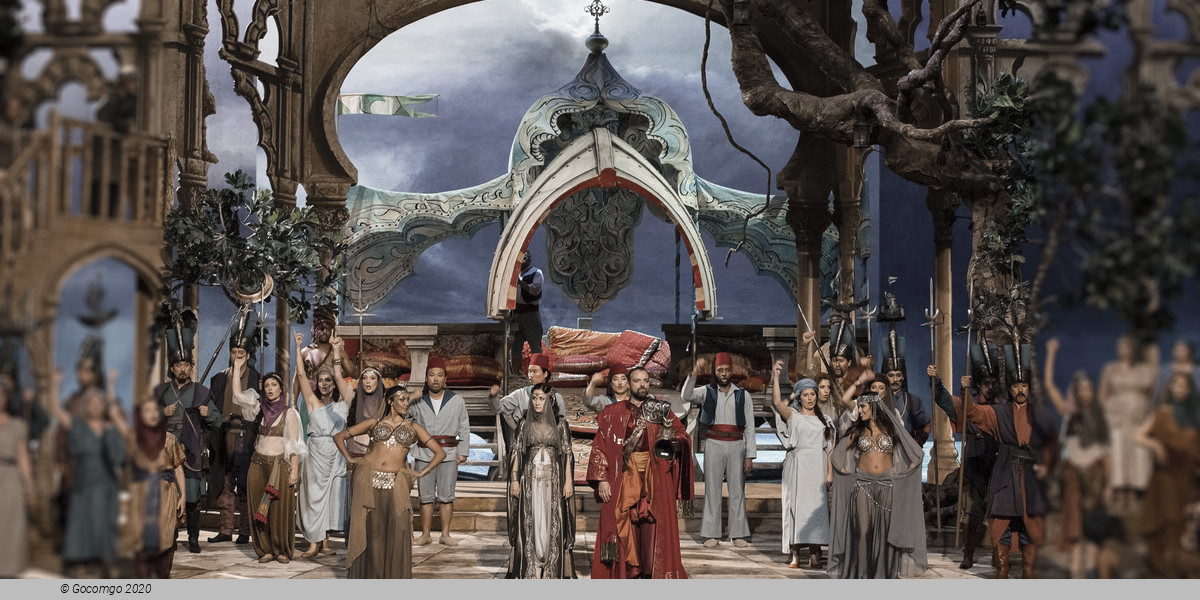
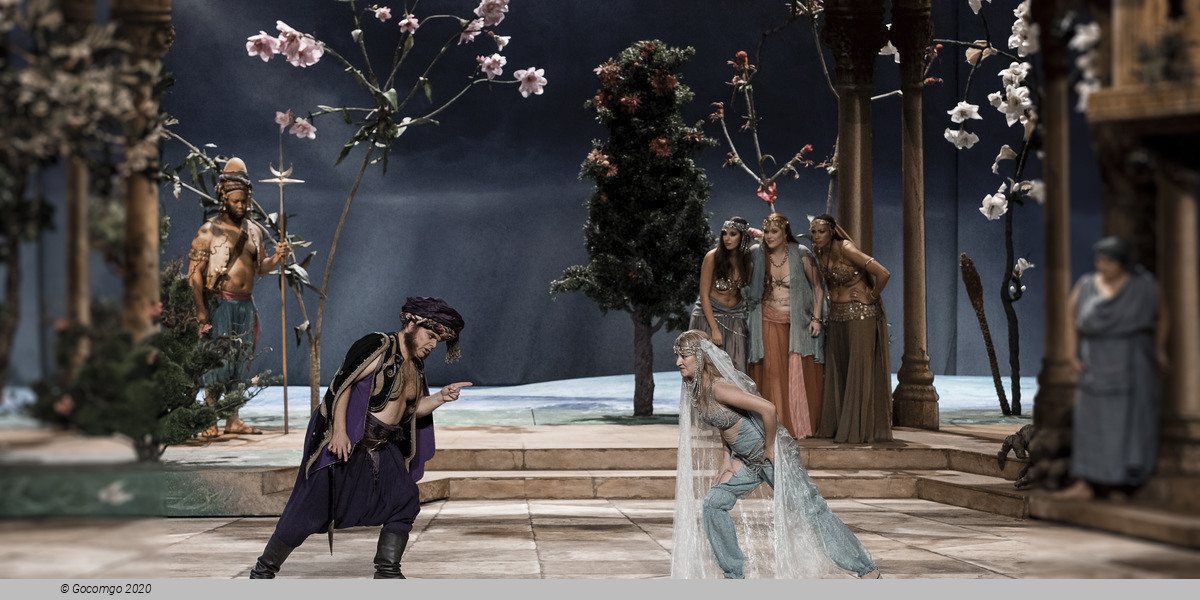
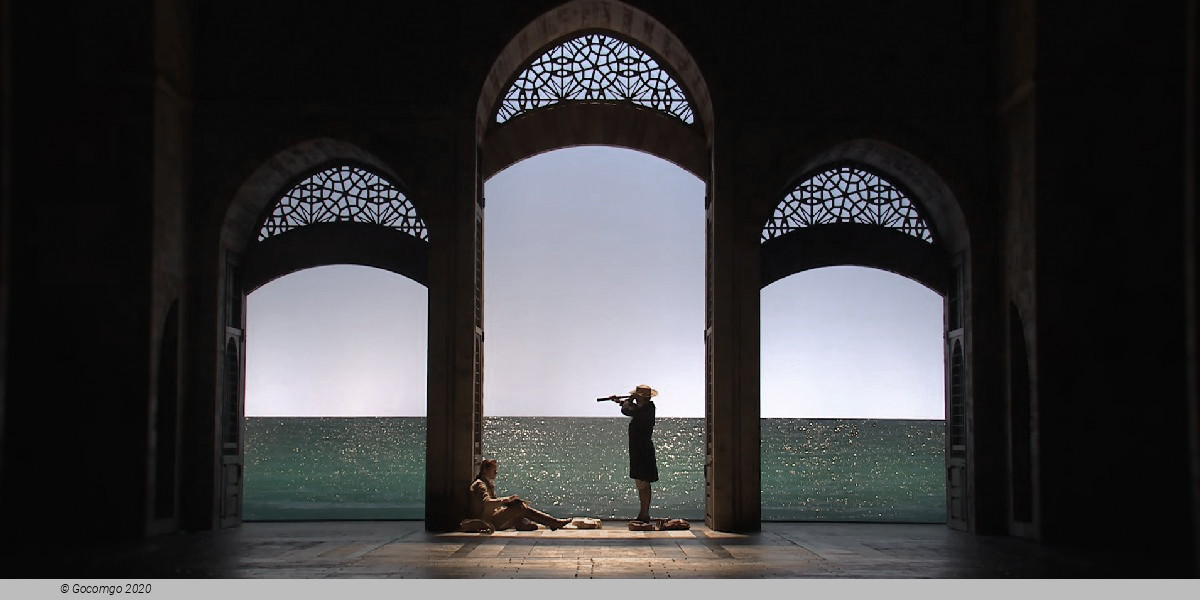
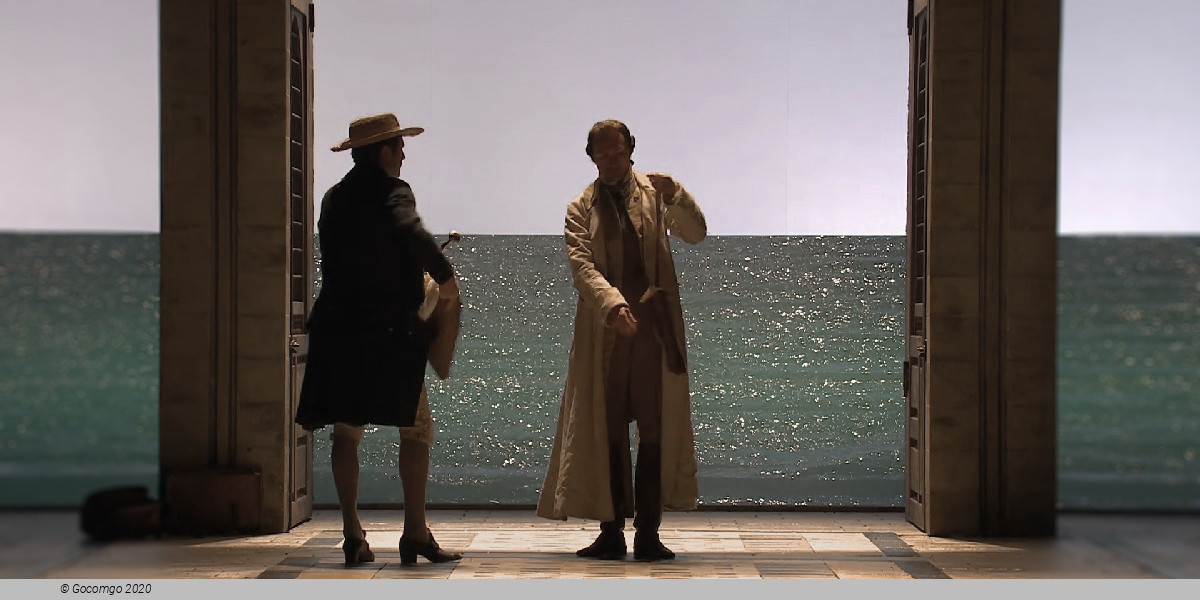
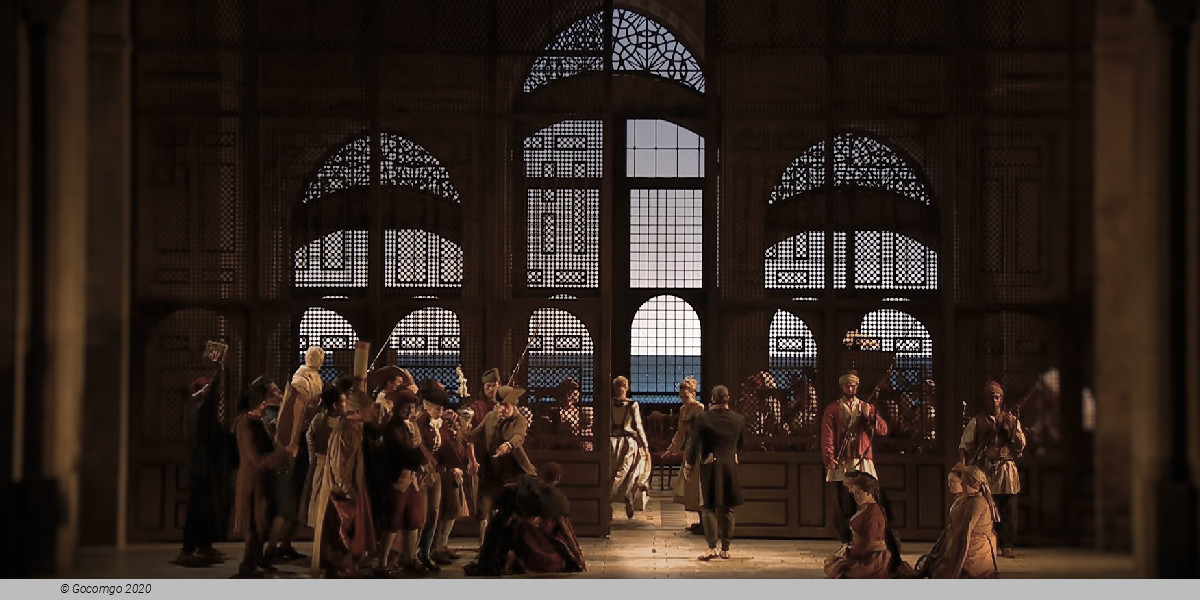
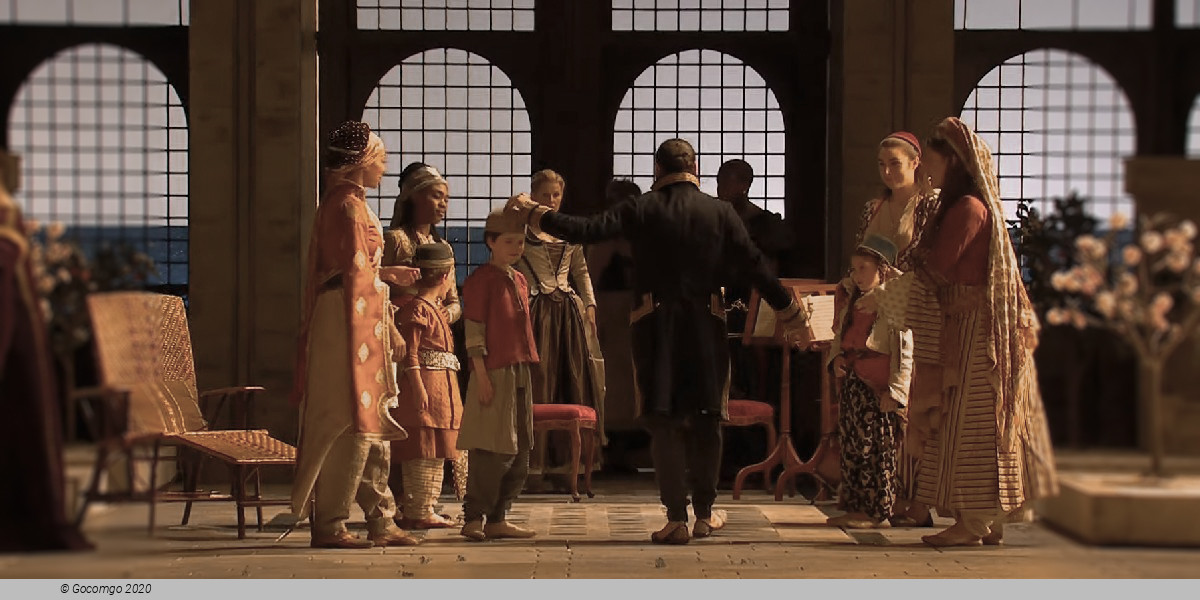
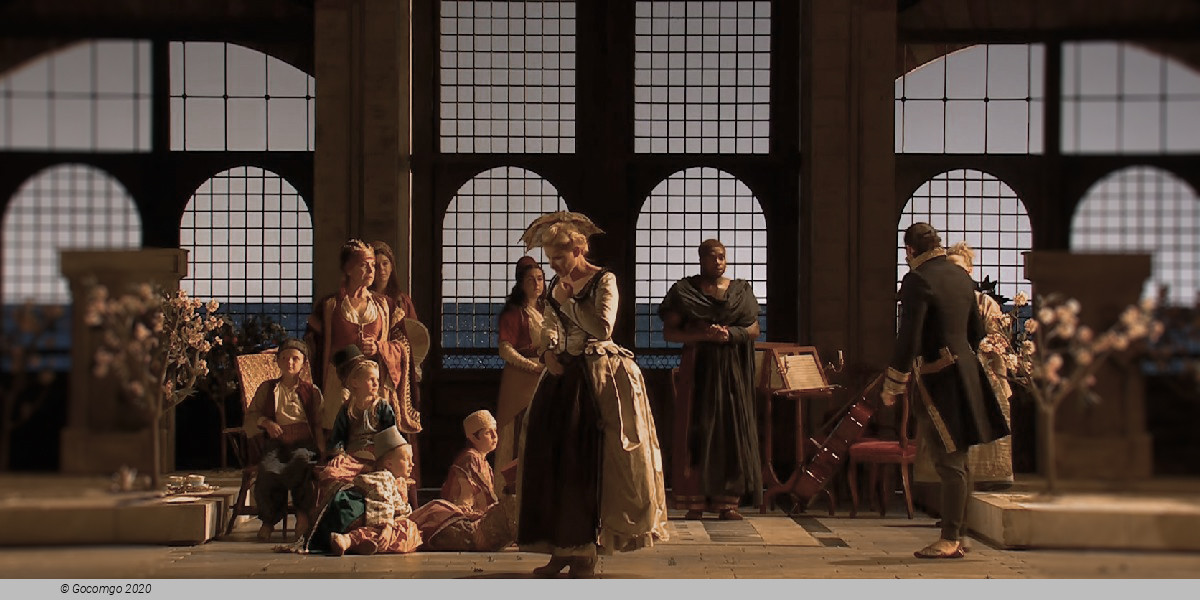
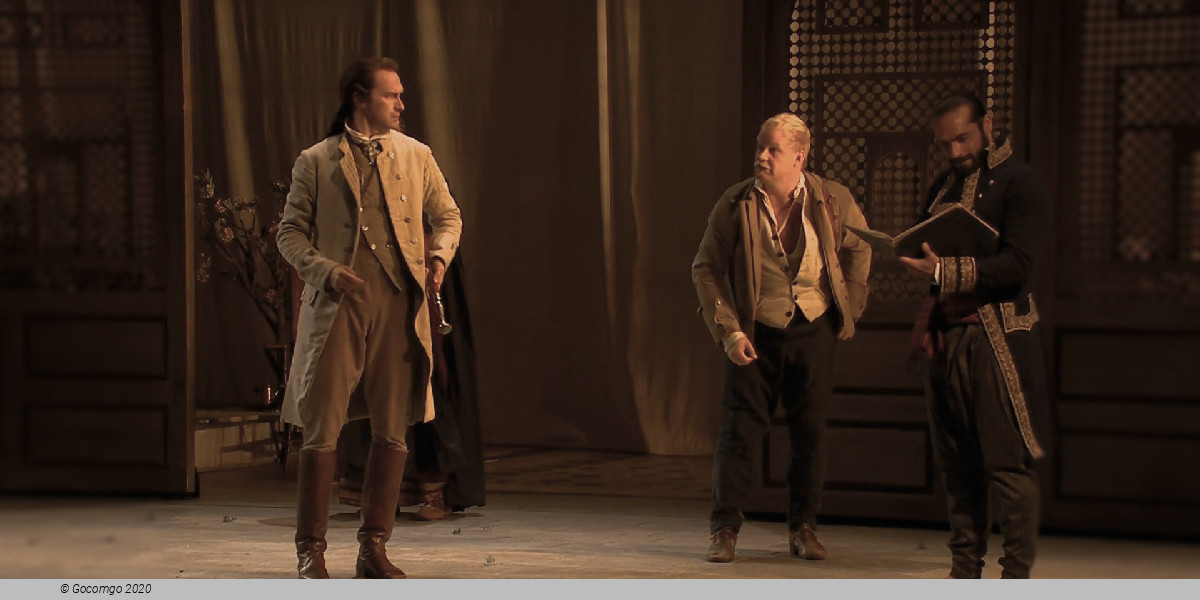
 Max-Joseph-Platz 2
Max-Joseph-Platz 2